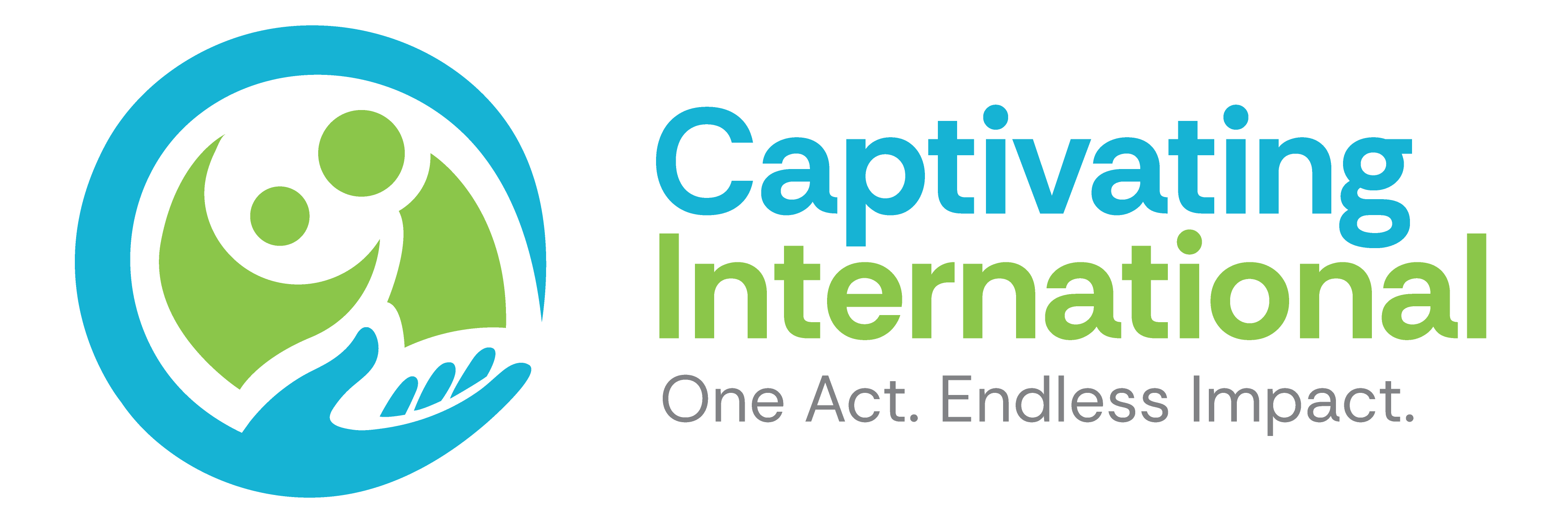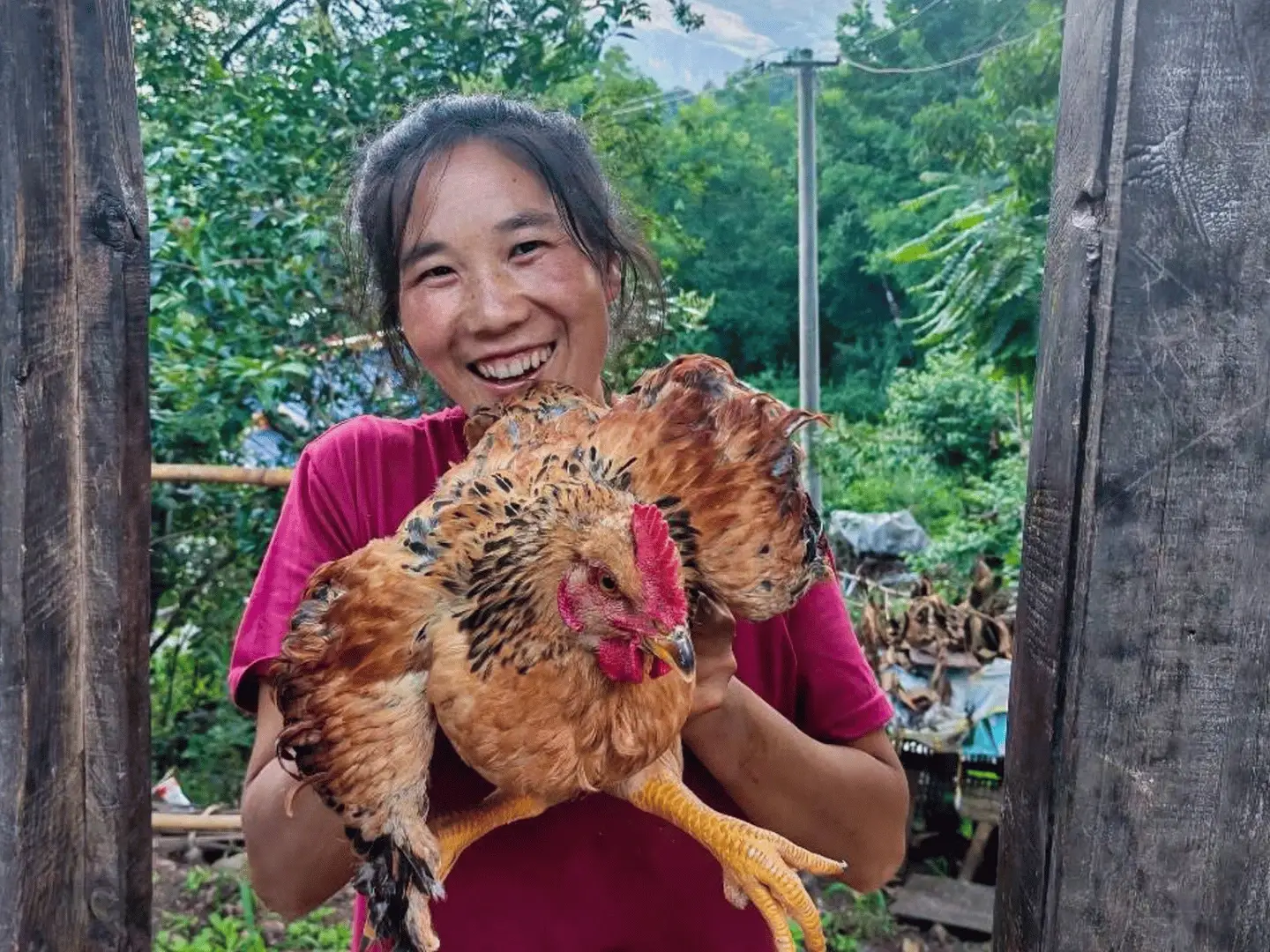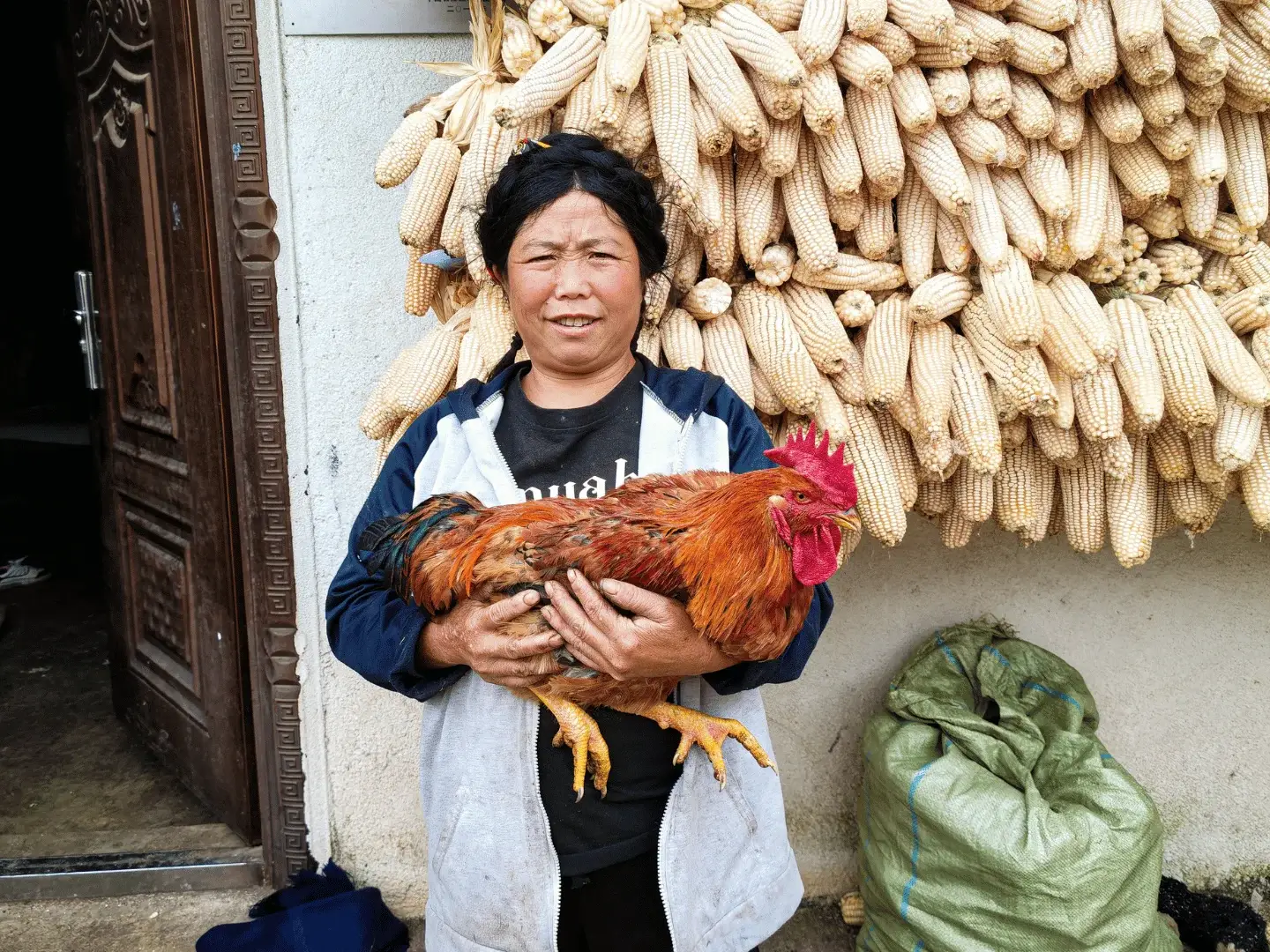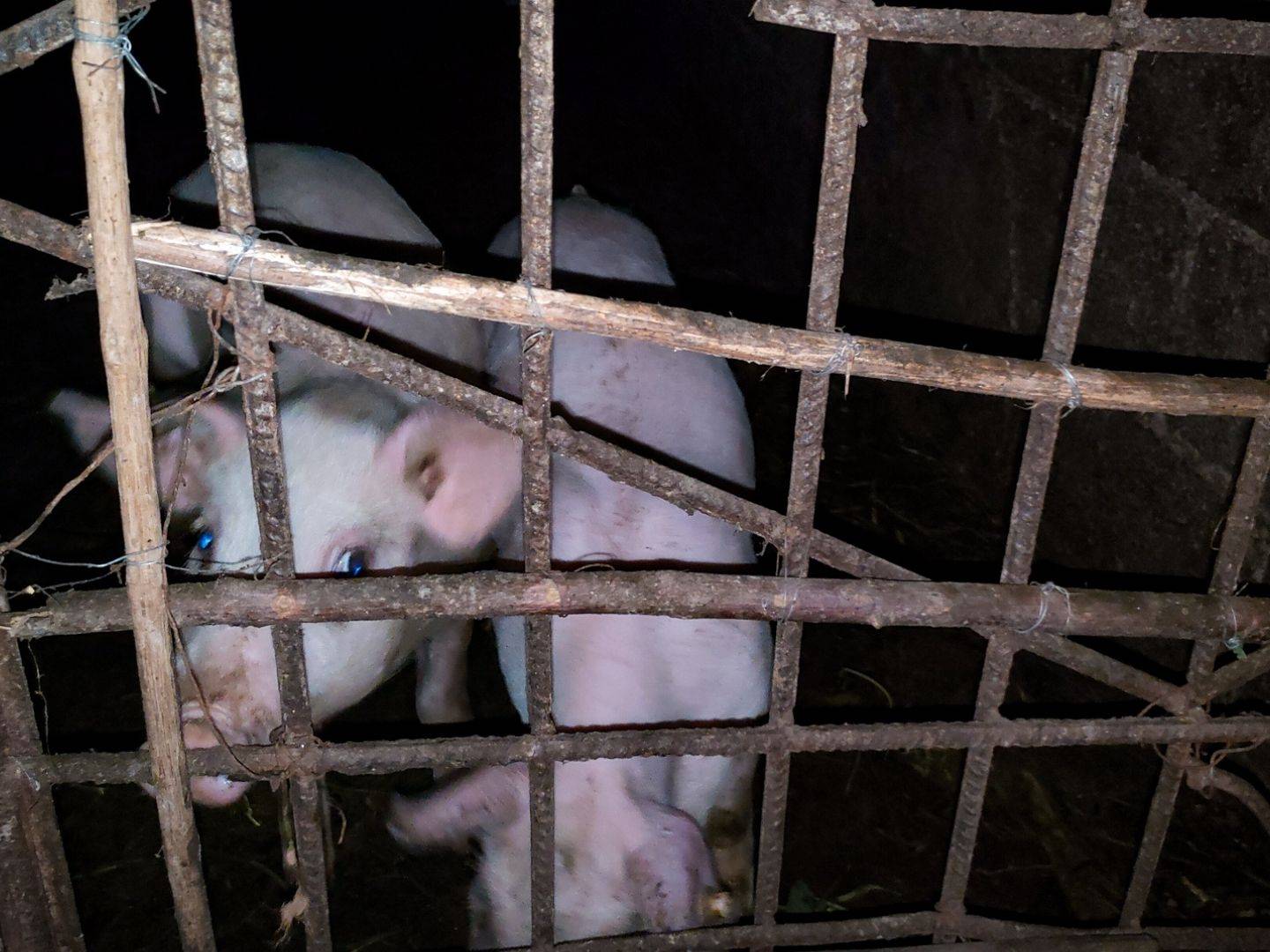Ae Yizuo (29) is a mother of 4 and the wife of a migrant worker. Recently, she had been one of our Pig Farming Program beneficiaries due to her household’s financial situation. Despite her husband working as a salesman in the city, and her attempts to farm from home—their household expenses are still far greater than what they both make. They are only one medical emergency away from having no food on the table. Plus, as their children grow, so will their educational expenses.
We visited Ae’s home on a hot afternoon. Our team members were sweating profusely, but we were determined to reach her home that day. When we arrived, a small child answered the door.
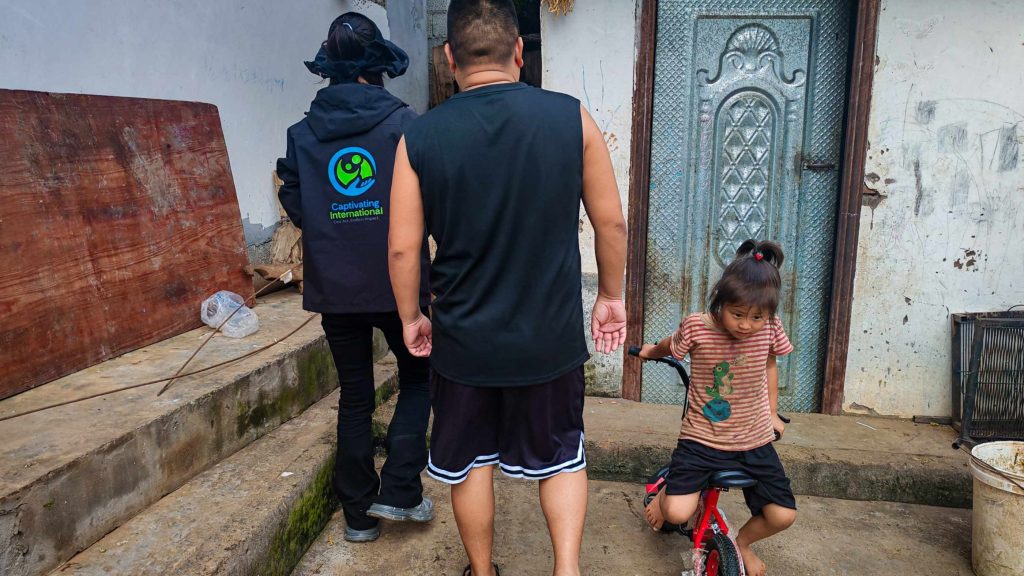
“Mama is in the field, ” he said. We waited.
A little while later, Ae was holding a heavy bamboo basket on her back with tools in hand, and a warm, apologetic smile spread across her face. As she put the tools and the basket down, she led us to the back of the house where the two pigs that our program provided were kept. The pigpen was clean and well-maintained with no unpleasant odors—signifying how regularly she kept this area clean. As we observed the pigs, they were playful and curious. They nudged her legs when she cooled and cleaned the pen with water. They even nibbled the water scoop, distracting her. She spoke to the pigs like a mother who would softly tell her children, “Don’t fuss now, drink your water!”
Seeing her interact with these pigs proved how she is taking care of these animals, and how she truly bonded with them. In our training sessions, we teach our trainees how to take good care of these pigs. When we asked her if she had been applying those techniques, her smile faded. She confessed, “I only caught the beginning.” Her eyes looked around the room, and she continued, “My son had a bad fall and broke his arm that very afternoon. I had to leave right away to take him to the hospital.” She darted her eyes towards her son’s direction as if to show us, and true enough, he is in a cast, still recovering.
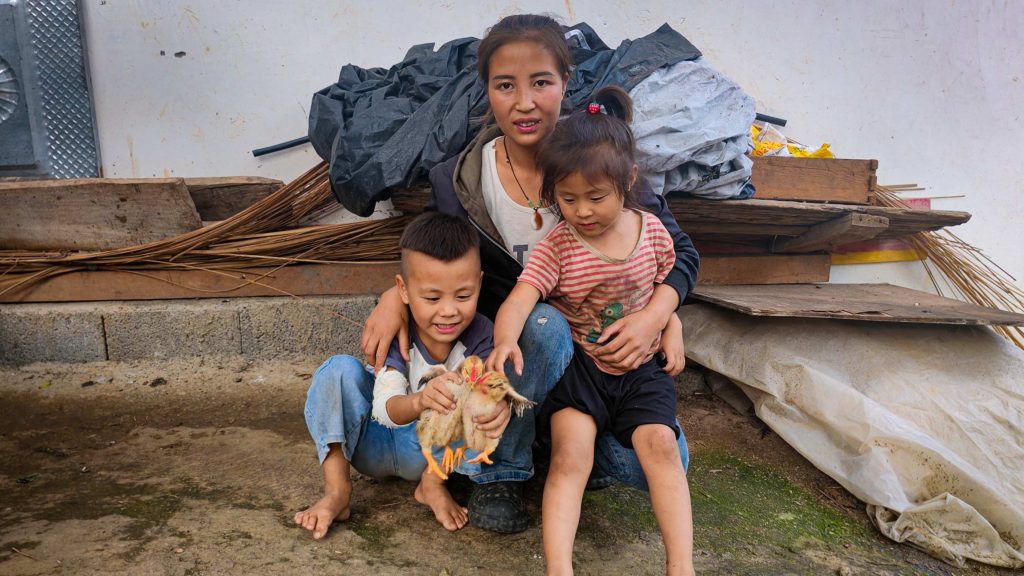
We had been working with mothers in this project, and this is not the first time this has happened. The mothers who attend our training are the same mothers who watch all their children alone at home, ensuring that they are well-fed and safe from accidents. It was not Ae’s fault.
Ae continued, expressing her regret. “I didn’t get to learn new feeding techniques” and had to resort to more traditional, yet less effective methods. The pigs struggled with diarrhea, and she sought help from neighbors who had received training about what kind of remedy to use. She pointed to the two pigs that we gave her and said, “The small one came at 25 jin, the larger at 35 jin. Now, the small one’s still not even 40, and the big one is just over 50. They’re growing slowly.”
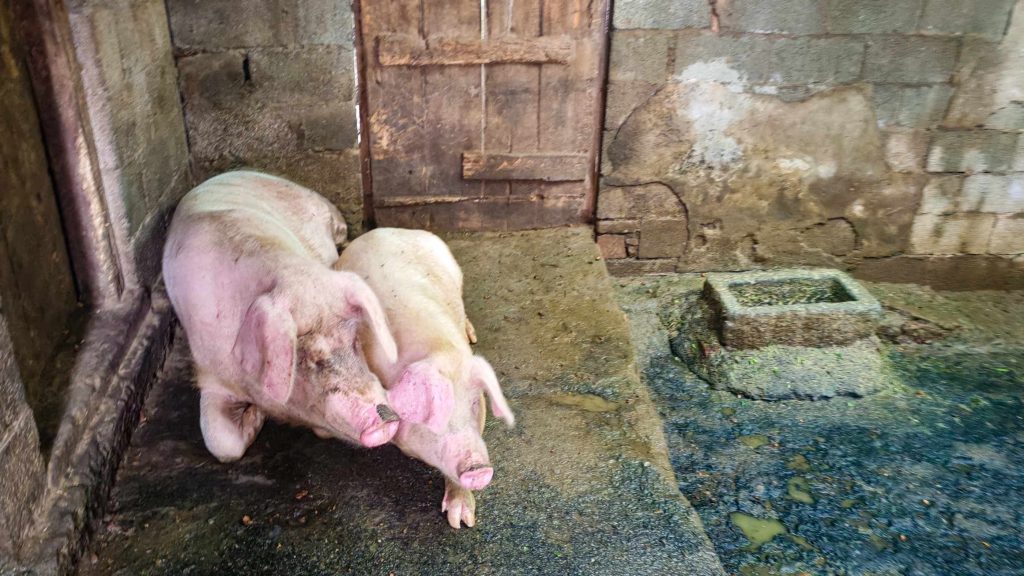
Even with this setback, she remained determined to learn. When we told her she could join our upcoming round of training sessions, her eyes lit up with joy. “I’ll make sure to attend from beginning to end this time! Thank you so much for not forgetting me. This support—it gives my family hope. I will raise these pigs well and sell them for a good price. I won’t let your help go to waste.”
Now that the training issue was resolved, we asked her about her children, specifically their education. From joy, her face now looked worried. She mentioned that her son’s injury had already created a financial strain in their household. She expresses her worry about additional expenses that they might incur in the future. She told us, “I fear the day may come when we’ll have to choose between affording treatment or sending the kids to school.” While the chances of it happening in the near future are thin, the possibility still haunts her and gives her the anxiety that she could never be truly prepared for the worst.
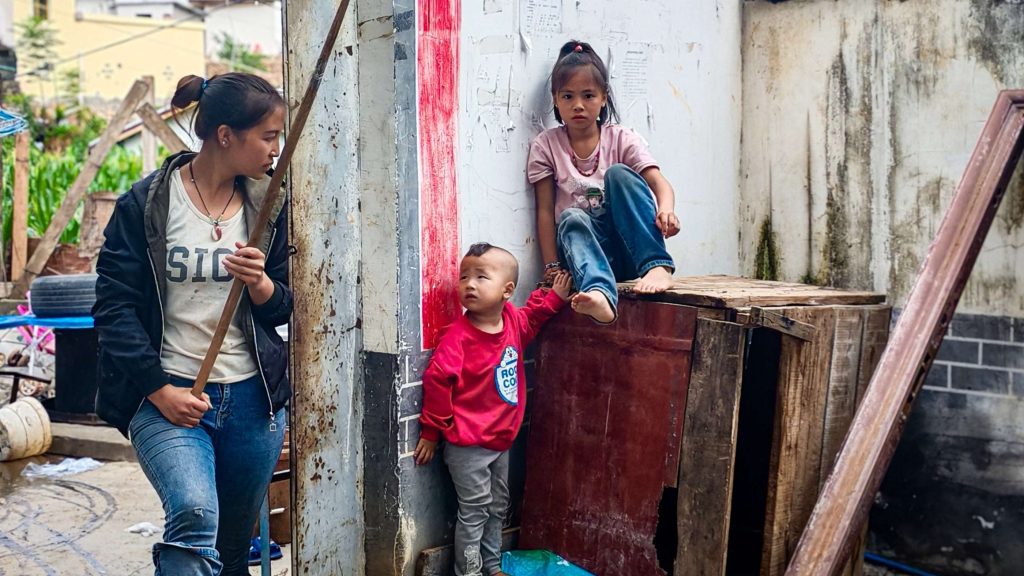
She paused and then spoke with conviction.
“Still, if my kids don’t go to school, they’ll be stuck here in the mountains like me. They won’t have the skills or knowledge to help others like you’re helping us. No matter how hard life gets, my husband and I will do whatever it takes to keep them learning, so they can leave the mountains, see the world, and one day help families like ours.”
A little while after, we said our goodbyes on a good note. Her words stayed with us long after we left. Our conversation, which was only supposed to be about livestock—turned out to be something more. It gave us a newfound inspiration to keep doing what we do for women like Ae. People—no matter what economic status they are a part of—are worthy of dreaming of a future beyond survival.
Our Partners

Be a Part of the Solution
By supporting the Pig Farming Program, you help provide crucial training, resources, and sustainable income opportunities for families in need.
Empower them today.
